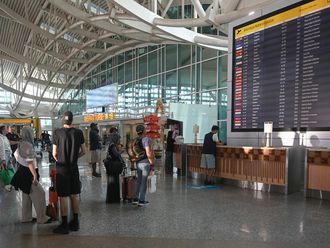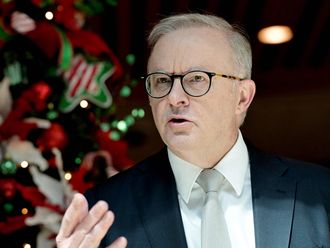Vatican City: Catholic cardinals have seized the rare chance of being able to air their grievances against the Vatican at talks that continued Friday, with no new pope to defer to and no old pope to mourn.
Benedict XVI suddenly announced his resignation last month saying he was too old to keep up with a fast-changing modern world, an unprecedented decision in modern Catholic history that has sent shockwaves through the Church worldwide.
The meetings of elderly cardinals that began on Monday are normally something of a formality before the conclave to elect a new pope but this time around they have taken a revolutionary turn.
The closed-door talks are protected by an oath of secrecy sworn by the cardinals, but the voices calling for change have been growing louder after the first papal resignation since the Middle Ages.
Vatican spokesman Federico Lombardi has revealed little about the meetings, known as “general congregations”, and has reminded cardinals they should pursue “greater reflection and discretion”.
Lombardi has said however that the issue of the Roman Curia - the administration of the Catholic Church - and its interaction with the Church around the world has been brought up frequently.
German cardinal Walter Kasper has been perhaps the most outspoken, telling the Italian daily La Repubblica before a media blackout was imposed that it was time for a “more horizontal government” to shake up the Church hierarchy.
“The Curia must be revolutionised,” Kasper said in the interview, adding: “As well as the word reform, there must be a second: transparency.”
Cardinals like Kasper have called for the talks to last longer to give more time for discussions that could effectively set out an agenda for the new pope but Italian media reports say that many Italian cardinals are getting restless.
Before they abruptly cancelled their daily media briefings on Wednesday, the US cardinals said they were also in favour of broader talks on the Church.
“For some, they want more discussions about these issues. There may be some who are a little more impatient,” Daniel DiNardo, the archbishop of Galveston-Houston in Texas, told reporters.
“I think that we need to look attentively at the work of the Curia in recent years,” DiNardo said, calling for more efficiency in Vatican government.
Sean O’Malley, the archbishop of Boston who is seen as a possible candidate for pope, said: “There is definitely a lot of reflection going on in the Catholic world on the governance of the Catholic Church and how to improve it.”
The Il Messaggero daily said there have been “informal discussions” going on between the cardinals on the sidelines of the formal meetings.












